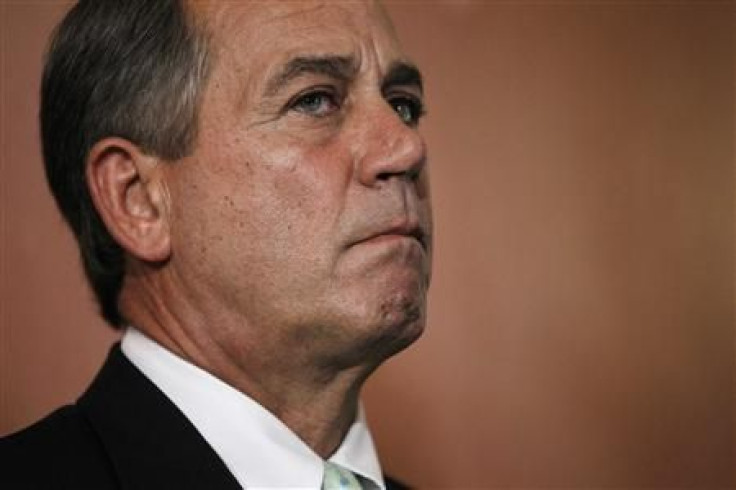Boehner Puts Deal on Payroll Tax Cut in Doubt Again

A tax break for 160 million American workers was in doubt Monday in the face of strong opposition from Republicans in the House of Representatives who have rejected a two-month extension overwhelmingly approved by the Senate over the weekend.
House Speaker John Boehner, the top Republican in Congress, demanded a fresh round of bargaining with the Democratic-controlled Senate to extend the payroll tax break through the 2012 election year.
Angry Democrats accused him of reneging on a deal brokered by Senate Republican leader Mitch McConnell and his Democratic counterpart Harry Reid. The two eked out a modest two-month extension on Friday after failing to break a deadlock over how to pay for the tax break for a full year.
The Senate passed the measure by 89 votes to 10 on Saturday. The House is set to vote on it on Monday, but the strong opposition of House Republicans means they will most likely try to amend the Senate bill or seek the negotiations demanded by Boehner.
Either way, it will be difficult to settle differences between the two parties with less than two weeks left before the tax break expires. Without congressional action the tax workers pay into the Social Security federal retirement program will rise to 6.2 percent on Jan. 1, from 4.2 percent.
The end-of-year fight, which many had thought had ended with the Senate deal on Friday, will further deepen widespread perceptions of dysfunction in Washington.
This just adds to the level of frustration with business as usual in Washington, and the general sense around the country that Congress is playing politics with our economic fate, said Scott Anderson, a senior analyst at Wells Fargo.
Public confidence in Congress has plunged to record lows this year after a series of bitter fights between Democrats and Republicans over spending and taxes brought the government to the brink of a shutdown three times and cost the United States its prized AAA credit rating from Standard & Poor's.
President Barack Obama and his Democratic allies in Congress say continuing the payroll tax break for another year will help spur the fragile economic recovery.
STICKING POINT
Boehner said on NBC's Meet the Press on Sunday that a two-month extension would create uncertainty for workers and employers at a critical time for the economy.
The biggest sticking point for a year-long extension is how to cover the $120 billion in lost revenue to the Social Security Trust Fund. Republicans are demanding spending cuts to cover the cost and Democrats want to pay for it by closing some tax breaks for the wealthy.
Analysts say House Republicans, who are skeptical about the stimulative impact of the tax cut on the economy and only grudgingly agreed to extend it, are concerned about reopening the issue in an election year. They will be vulnerable to a fresh round of attacks by Democrats that they only favor tax cuts for the wealthy, not for the middle class.
Boehner is a man under pressure. He has to address the concerns of his rank-and-file members while ensuring that a compromise deal is struck before Dec. 31. Failure would mean taxes going up by about $1,000 for the average worker, for which House Republicans would likely be blamed.
With a few days left before Christmas, there is a little time to renegotiate this, said Republican strategist Ron Bonjean. The Republican leadership knows it will be in a politically difficult position if this were to expire at Christmas time and will likely find a solution soon.
Economists have warned that reverting to the higher payroll tax rate would drain stimulus from an economy struggling to add jobs, making it more vulnerable to the spillover effects of likely recession in debt-stricken Europe.
The Senate bill also extends an expiring jobless benefits program for the long-term unemployed and averts a pay cut in January for doctors treating patients in the Medicare health insurance program for the elderly.
It includes a provision demanded by House Republicans that would force Obama to accelerate a decision on TransCanada Corp's Keystone XL oil pipeline project, which is backed by some labor unions but opposed by environmental groups.
In a conference call with House Republicans on Saturday, Boehner painted this as a victory for House Republicans because Obama had strongly opposed efforts to link Keystone with the payroll tax cut. But the sweetener was not enough to quell overwhelming opposition to the Senate bill. (Additional reporting by William Schomberg in New York)
(Reporting by David Lawder and Donna Smith; editing by Todd Eastham)
© Copyright Thomson Reuters 2024. All rights reserved.











